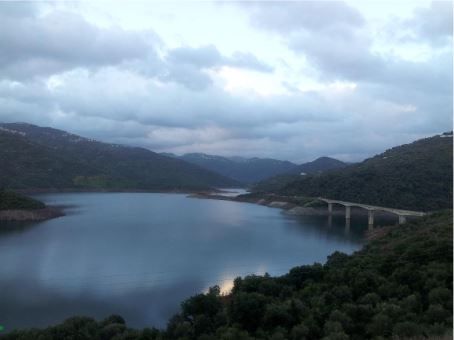Legal Framework
The latest version of the Water Law is dated 2009. The Law No. 05-12 relating to water contains 10 chapters and 183 articles. It defines the principles and rules relating to water resources use, management, and sustainable development.
The PNE establishes national objectives and priorities for water resource mobilisation, integrated management, transfer and distribution. It also sets the economic, financial, legal and organisational framework for achieving such goals.
The PDAREs define strategic choices for water resource (including non-conventional waters) mobilisation, distribution and use, for each natural hydrographic unit. Its objectives include ensuring that water needs are satisfied, preserving water quality and quantity, and providing risk prevention and management.
Main Institutions
The missions of monitoring, evaluating, planning, mobilizing and managing the water resources in quantity and quality are the responsibility of the Ministry of Public Works, Hydraulics and Basic Infrastructure, within which a separate Minister for the Hydraulics division was appointed in a 2023 presidential decree.
The Water Law establishes the institutional framework for integrated water resources management. The Conseil national consultatif des ressources en eau (National Advisory Council on Water Resources) is responsible for assessing strategies and instruments for the implementation of the National Water Plan. The Autorité de regulation de l’eau (Water Regulation Authority) oversees all public water services in particular regarding standards and regulation application, tariffs definition and quality monitoring.
The AGIRE is in charge of integrated water resources management for the whole territory. AGIRE is coordinating the activities of the 5 Algerian river basin agencies (ABH). Drinking water supply in urban areas is provided by the Algérienne des Eaux (ADE) and sanitation is managed by the Office national de l’Assainissement (ONA: National Sanitation Office). In rural areas, drinking water and sanitation are the responsibility of local authorities, the wilaya's hydraulic directorate (DHW), under the administrative authority of the Wali. Irrigation is managed by the Office National de l'Irrigation et du Drainage (ONID: National Irrigation and Drainage Office).
Furthermore, the Agence Nationale des Barrages et Transferts (ANBT: National Agency of Dams and Transfers) is in charge of implementing the plans and programs for the mobilisation and transfer of surface water resources and is the contracting authority for construction and renovation projects.
All studies and assessments of hydraulic resources fall under the authority of the Agence Nationale des Ressources Hydriques (ANRH: National Water Resources Agency).
|
Area of expertise |
Water resource management |
Drinking water supply |
Sanitation |
Irrigation |
|
Responsible authority |
||||
|
Ministry of Public Works, Hydraulics and Basic Infrastructure |
☑ |
|||
|
AGIRE |
☑ |
|||
|
ADE |
☑ |
|||
|
ONA |
☑ |
|||
|
DHW |
☑ |
☑ |
||
|
ONID |
☑ |
|||
|
ABH |
☑ |
The territorial water management
A 1996 executive decree inscribed a definition of hydrographic basins and created 5 river basin agencies (ABH) for regional water management:
- Agence de Bassin Hydrographique "Oranie – Chott Chergui"
- Agence de Bassin Hydrographique "Sahara"
- Agence du Bassin Hydrographique "Chellif-Zahrez"
- Agence de Bassin Hydrographique "Algérois-Hodna-Soummam"
- Agence de Bassin Hydrographique "Constantinois-Seybousse-Mellègue"
After the creation of AGIRE by executive decree in 2011 (under the supervision of the corresponding Ministry), such agencies, while maintaining their original purpose, were attached to AGIRE as its territorial branches for basin-level studies and consultations on water management.
Desalination Projects
Following the adoption of a national plan for the development of desalination plants in 2021, 5 plants have been in construction under the supervision of SONATRACH, the national oil and gas company, and the Algerian Energy Company, both commissioned by the Ministry of Energy, Mines and Renewable Energies and the Ministry of Hydraulics.
As of February 2025, 3 plants were announced as “operational” in Oran, Tipasa and El Tard. The last 2 plants in Boumerdès and Bejaïa are to be delivered in the next months (President Tebboune, Radio Algérienne, 2025; Minister Derbal, Radio Algérienne, 2025)
Main issues in Water Resource Management
In addition to the geographical disadvantages, Algeria is faced with high water resource exploitation and pollution. The current state of the water treatment infrastructure is unable to keep up with the levels of wastewater. The water transfer policy has furthered the preexisting unbalance between resource supply and demand. Moreover, rising urbanisation and coastal overexploitation have resulted in high contamination and salination levels of groundwater (Projet CREM, 2016).



